Although still in his early teens, JULIAN FEDER is no stranger to the camera. Born in Tokyo and raised in Singapore until the age of 10, Julian began a modeling career when just a baby and transitioned into acting professionally before the age of 7. Since then, he has been a familiar face thanks to one-off performances in television shows like Rizzoli & Isles and Community, but also with some key roles in Wiener Dog Internationals, I Hate Kids, and most notably A Boy Called Po in which he played the title character of Po. And with each role, Julian’s confidence and screen presence has grown.
Now, with WALKAWAY JOE, Julian crosses that make or break bridge going from “kid roles” to one with more maturity, transitioning into what will undoubtedly be more adult roles as his career continue to flourish. Later this year we’ll see him in Doorman with Jean Reno and Ruby Rose.
Playing opposite veteran actors Jeffrey Dean Morgan and David Strathairn, Julian plays Dallas McCarthy, son to Morgan’s character Cal McCarthy. A professional pool player, Cal is anything but a father to Dallas, believing it more important to be a pal, yet Dallas idolizes Cal and follows him in and out of bars learning the tricks of the trade with pool and pool hustling. Always at odds with his mother, Dallas blames her when Cal takes off and sets out on his own (on his bike) to find his dad at the one spot he is certain to be – a national pool tournament, several states away. Needless to say, things don’t go quite as Dallas planned and he runs into Joe Haley, eloquently and humbly played by David Strathairn. Life lessons abound for Dallas and Joe as Joe agrees to take Dallas to his dad at the tournament. And in a surprise move, Dallas tells Joe that intends to enter the tournament and try to beat Cal.
WALKAWAY JOE is more than the journey of Dallas and Joe. Heartwarming, believable, and resonant, this is a story about second chances and redemption. Julian delivers a standout performance, exhibiting a full range of emotion through an emotionally challenging character arc. I spoke with him in this exclusive interview during the pandemic lockdown about the film, his role as Dallas, and where does he go from here.
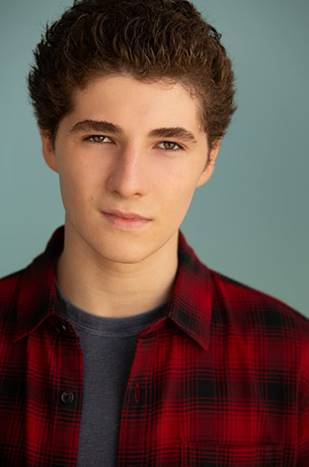
I have to say “thank you very much” for making WALKAWAY JOE, Julian. It gives me, and others, one more good thing to watch during the quarantine. What a wonderful film! And this is an incredible performance. To watch you go toe-to-toe with Jeffrey [Dean Morgan] and with David [Strathairn] and never bat an eye is amazing to watch.
Thank you! And thank you for watching.
What did you think when this script came to you and you first read it as this is really a transitional film for you as really taking you from being a child actor into morphing into a young adult teen actor. So I’m curious about your thoughts when you first read this one.
When I first got the script, it seemed really great. And, I mean, I also knew that David Strathairn was going to be in it, so I was really excited for me. I mean, he’s done so many movies. It’s insane. I mean, it was great. I mean, the movie before this… I’d done a comedy, and I was excited to do another drama. When I read it, it seemed great. So I was really excited to get the part.

Anything that stood out for you in this one because you were shooting this when you were roughly around 14 and Dallas gets to have some great adventures. He’s a pool hustler. He’s driving RVs and pickup trucks. How skilled were you in those things when you took the role?
Pool? Not at all. I mean, I played pool for fun whenever there was a pool table somewhere, but not seriously. After I got the part, I spent several months working with a coach, playing pool multiple hours a day. I got a pool table at my house and then once in pre-production when we all went to Louisiana, I played with another amazing pool player. His name’s Joey Aguzin. He was the pool consultant for the movie and I spent about another month, then, preparing with him, going over the shots that they wanted to do for the movie. I did all my own shots for the movie, which is great! And then in terms of driving… I mean, I was 14. I still don’t have my driver’s license or anything so I hadn’t really driven a ton. It was really funny because Jeffrey Dean Morgan [and I], we were supposed to do this scene where I’m in this big pickup truck with him. I get in the truck and I’m supposed to be driving. And because I’m 14 he said, “You know how to drive this thing, right, kid?” And I’m like, “Oh yeah. Yeah.” I point to the gas and I say, “That’s a brake, right?” And then his face just dropped! [laughing] I was so nervous I was like, “Yeah, yeah.” And he’s like, “See that you do. I want you to get out of the car. He was like, “You’re kidding me, right?” It was a lot of fun. But getting to learn how to play pool was great. And the incredible thing about pool is you don’t realize how physically demanding it is. You think you just hit a ball with a stick and that’s it. But, you have pool positions. And mentally, it’s how you hit a ball. If you miss, it’s the worst thing on the planet, especially when you’re filming and everyone’s kind of on a schedule and you have to make these certain shots. But once you get it, once you make a shot, it’s the best feeling in the world. From this movie, I’ve got a whole new level of respect for professional pool players.
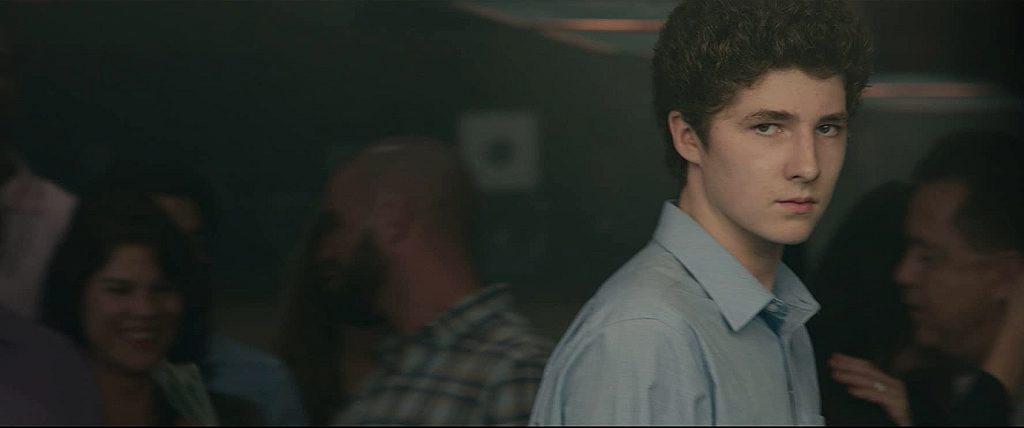
Has it made you now want to go back and look at some of the classic pool movies like The Hustler or The Color of Money?
Before doing this movie, I watched both of those movies multiple times just to see how they shot, what shots they did and just how they interacted around a pool table. To kind of “sell” the pool thing, there’s like little kinds of gestures that professional pool players do that you want to try and emulate; like how you hold the chalk, how you chalk up the pool cue or whatever. I watched those movies and I watched a lot of professional players on YouTube.
Watching you, Julian, I never would have guessed that you had not played pool before training for this film. I love how you just talked about chalking up the cue stick because the way that you manipulated that chalk on the end of it? Perfect. But then the look on your face while you play, it’s almost as if we can see the wheels turning in your head as you’re setting up to take a shot and deciding what angle and how far down you’re going to go, what’s your leverage going to be. It’s really fascinating to watch you and wonder what’s going through your mind as you’re playing. I was so impressed with that.
Thank you!

You’ve got Tom Wright directing. After decades as an actor, he makes the leap to direct. This film is his first feature film. How beneficial was that for you to have an actor-turned-director directing you in this film?
It was great. At least another director that I’ve worked with was also an actor and I feel when you have a director who’s also an actor, they kind of understand the process and they can help you along. They can help you prepare for a scene and just the notes that they give you are “doable”, sort of, to a degree, if that makes sense. It’s not like some kind of crazy thing. You understand what you’re doing because they’re giving notes that they would like to get. So I would say that it’s really helpful as an actor if a director also happens to be one.
You’ve done some one-offs on television. You’ve done things like Rizzoli & Isles, Community. But now you’re building up your film resume. You did A Boy called Po, I Hate Kids with Tom Everett Scott, and now WALKAWAY JOE. How is the whole film process for you versus just jumping in and out for a one-off on a television series? Do you really get a chance to hone the character, to establish a rapport, or is it just moving so fast it’s like in and out?
When I did this TV thing, I was obviously younger, so I’ve developed more of a process for developing characters. But when you’re in a movie, you get so much more time to create your backstories and really get all the details. Granted, I was younger when I did television so my memory’s a little foggy, but I think when I did the television stuff, I got the part and had about a week and then we started filming. In terms of doing the processes for movies, like your backstory, it really started with Po and just sort of evolved as I’ve done different movies. It’s definitely different. When you’re doing a one-off TV thing, you have a lot less lines. Your scenes aren’t as long or extended. It’s short. It’s only like a one-day thing, two-day thing. So it’s less demanding. But at the same time doing a movie’s almost easier because you get in a flow where in a TV show, you’re just kind of tossed in and then you’re just supposed to kind of act.
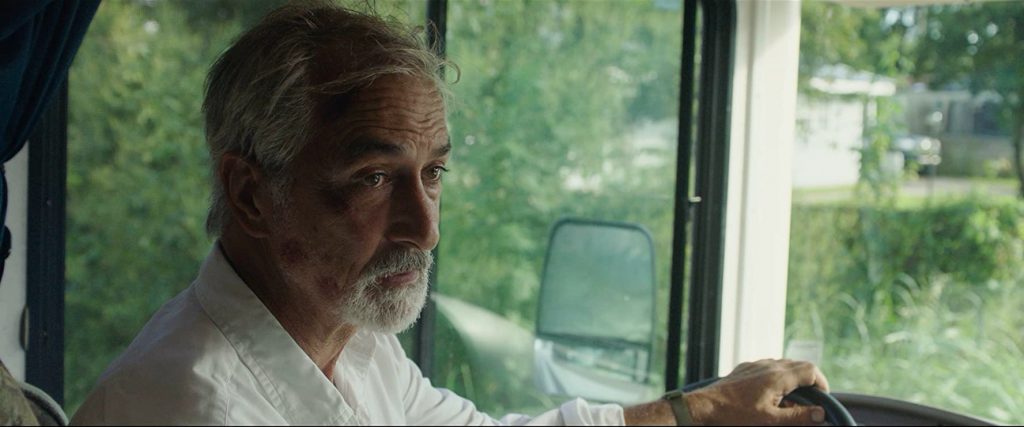
Now, I’m curious about the RV scenes because so much of this film, it’s you and David’s character of Joe. You guys are in the RV having conversations, or not really having that much conversation because neither Dallas nor Joe is that talkative. You’re both very introverted, introspective characters, very observational to the world around them. I know from a directorial standpoint, traveling scenes in cars and RVs is a nightmare because you have sound issues, you have air conditioning issues, you have to turn the air conditioner off for sound reasons and then the actors are sweating to death. And here you are shooting in Louisiana, which is hot and humid with lots of bugs to begin with…
Especially during the summer when we filmed it.
Did this present any kind of new challenges or experiences for you, actually shooting so much contained in the RV? Did you get to have air conditioning?
Well, I’d previously done a movie, I Hate Kids, which was another road trip movie. And in that movie, it was this old… I don’t remember what the car was, but it was one of the really old cars…probably from like the ’60s. It was big and it was a convertible, and we just sat and baked in the sun 24/7 during that movie. WALKAWAY JOE wasn’t really that bad. In terms of air conditioning and whatnot, I used to live in Singapore for eight years, so I’m used to the heat, the humidity. But the California sun, and in that car with the leather seats was not particularly fun. We had to sit on towels and stuff because the seats were just too hot to sit on. But in terms of the contained spaces, with a lot of the stuff that we filmed in the RV, we had some scenes where they were driving and they were filming, and we did some scenes where it was in a studio. A lot of it was stationary, so we weren’t actually moving during the shooting. So it wasn’t really that hot. But when we were outside!! There’s a scene where I’m on the side of the road where I have to bike or whatever. I’m wearing blue jeans and long sleeve shirts and cowboy hats and whatnot. And so that’s when it gets really, really hot.

You looked really, really hot and tired and sweaty in that scene, by the way. The way that your shoulders were slumped down and you’re walking and it’s like, “Oh my God, kill me now. Just let me fall in the ground and die.” You conveyed that really well.
Yeah. Well, there’s this funny thing in Singapore when you would leave the airport, once you’ve been gone for a really long time. This is the way the airport works. There’s sliding doors, right? Everything in Singapore is freezing. They blast the air conditioners inside everywhere. I was just thinking about that while I was filming it. It’s like you walk outside and it’s like someone just smacked you with a hammer just straight to the chest. You just get all that heat and humidity. And I mean, it was hot there. I feel like I have a lot of experience dealing with humidity.
There was never a moment I did not believe every emotion that you were conveying as Dallas, be it being hot, be it going through Dallas’s own journey as his eyes are opening up to who Joe is and learning lessons, and who his father is and learning lessons. That’s one of the great things with this role. With this character you take us on that emotional arc. We see Dallas growing up before our eyes, but at the same time finally realizing, “Hey, it’s nice to be only 14 years old.”
It definitely was like an archetypic character. You start out and Dallas is very confrontational, growing up in pool halls with his father and the people who his father hung out with who are definitely shady. Also, another thing about why Dallas is that he is still kind of confrontational but by the end he kind of changes and softens. There’s a very interesting relationship that that family relationship, his mother and his father. Dallas was very hostile to his mother. He loves her, but he idolizes his father. He thinks that he is the father. He wants to emulate him in every possible way. Dallas feels that his mother is constantly pushing Cal away, that eventually she’s going to push so much that he’s going to leave, which he does, and Dallas is just trying to protect his father. So I think Dallas was always protecting his father. That’s why if Joe makes a comment about his father, he gets very aggressive and I think that’s also why he’s just generally an aggressive person. Dallas feels a responsibility to kind of protecting his father because his father doesn’t have a particularly good reputation. People generally have a negative view on him. But as the story progresses, he kind of softens. He kind of learns from Joe about life, about who his father truly is. Dallas is kind of blinded by his love for his father and he never really realizes that maybe his father isn’t the best guy and I think Joe kind of exposes him to that. So there is definitely a character arc, a big one, for Dallas.
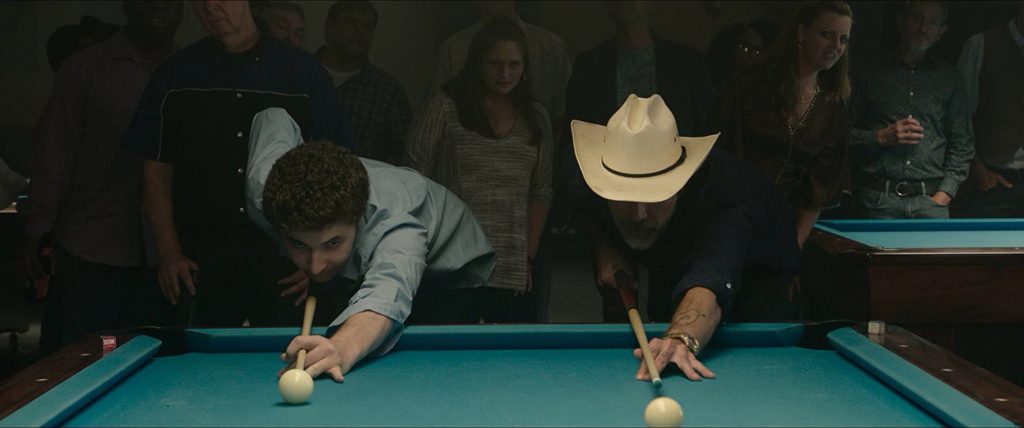
One of the big things we see unfold in this story, if people listen to the dialogue, is the conversation between Dallas’s mother and father and she’s saying, “Look, he needs a father, not a pal,” and then we later see Joe, “Here’s a dime. Call your mother. Here, put on a clean shirt so you’re not all sweaty and smelly when you see your dad again.” Joe starts doing all these paternal things and they’re paternal things that, as we find out, Joe wasn’t doing with his own son. This is very cathartic for Joe, while at the same time showing Dallas the things a father does do.
I think Joe provides Dallas with what a real fatherly relationship would be like, and Dallas provides Joe kind of like what a son would be like. They both get the opportunity to kind of experience sort of that relationship, which neither of them really did experience previously. Joe wasn’t there for his son and Cal was never there for Dallas. So it’s a very interesting relationship and in many ways, Joe kind of becomes Dallas’s father and Dallas becomes Joe’s son.
It’s really beautiful to watch this develop. And you and David have such a great chemistry together on screen as this relationship unfolds. It’s really a joy watching the two of you. I’m curious, Julian, at this stage of your career, what are you looking for in terms of roles to tackle? Is it directors you’re looking for? Is it a specific kind of character? Do you want to go and do more comedy, drama? What are you looking for as scripts start hitting your desk and will definitely be doing again once we’re out of lockdown?
Right now, it’s mainly just getting a part. I’ll take any part right now. If I had to choose a particular role to play, I prefer drama. I feel like they’re more in-depth and you can really explore characters more. Maybe that’s because I’ve mainly done dramas, my bigger movies have been dramas. I really enjoy them. When I do see a script, that’s kind of what I look forward to, if it’s a drama. It’s an interesting question. I’ve only had that happen a few times, so I haven’t had a ton of experience of people just offering me parts but I like drama.
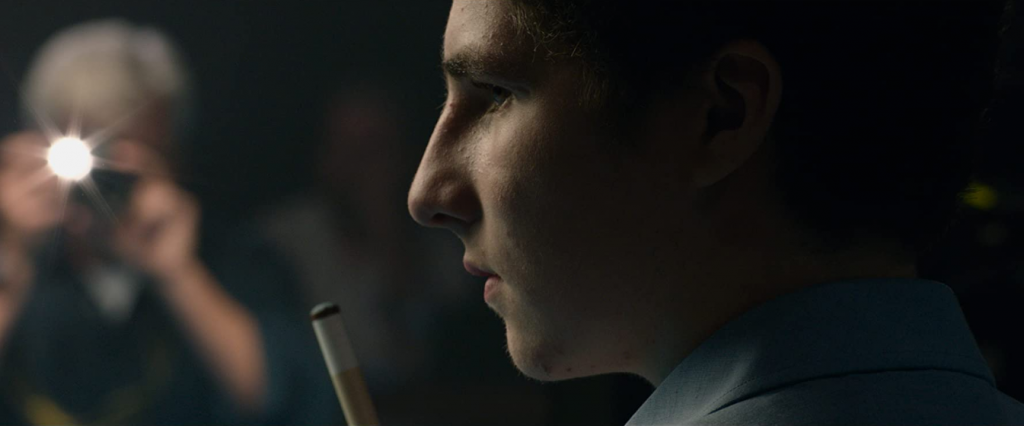
And how has the acting been fitting in with school at this stage of your career? Are you homeschooled? Do you go to school when schools are actually open? How are you finding a balance there? What’s that like for you?
I’m homeschooled. I’ve been homeschooled since I was seven and so it’s really easy. I haven’t had that big of a problem, though I know most of my friends are saying I’m doing too much school. I feel like I’ve kind of gotten the bad end of this deal [with lockdown]. I’m always getting messages saying, “Hey, you want to play some games?” And I’m like, “How are you guys not in school? It’s 12:00.” It’s been fine though. I haven’t had to readjust, but I definitely think that I’d rather not be doing school life. The rest of my friends are just going to get like a six-month summer or something. Crazy.
And here you are toiling and slaving away. Well, you’ll be the educated one. You’ll be the one that they all come running to in the future when it’s time for them to take their SATs and all. They’re going to come to you, “Julian. Julian, we didn’t study. What do we do?” You can start a side business here. You can tutor them in how to study at home.
Yeah, exactly! I feel like I could do really well on that.
by debbie elias, exclusive interview 05/05/2020
WALKAWAY JOE is available on Amazon Prime and VOD.











